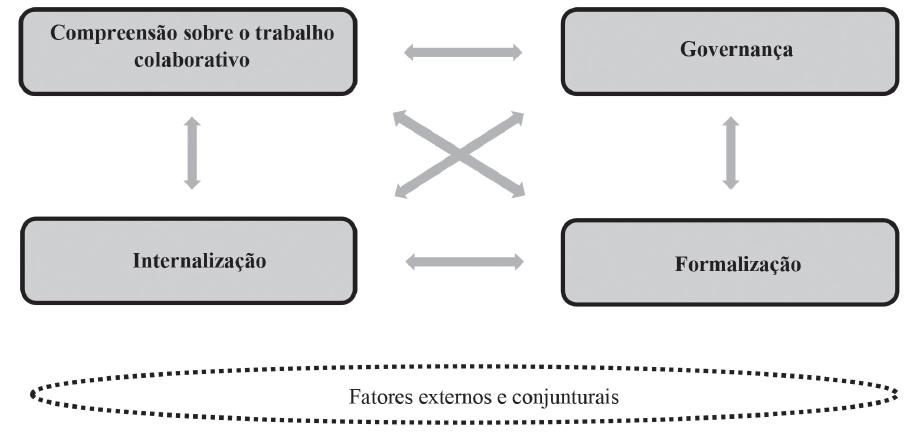Abstract
Collaborative care is presented as a strategy to increase resolutiveness in Primary Health Care. This study analyzes the collaborative care between the Family Health Support Centers and the reference teams based on the Matrix Support. Qualitative research developed in six municipalities of Bahia state, Brazil, with interviews conducted with 43 professionals from the support groups and 40 from the Family Health Teams. The model of the inter-professional collaboration was composed by the dimensions: Understanding; Internalization; Governance; and Formalization. In the four dimensions, there were difficulties for inter-professional collaboration. The collaborative work and the Matrix Support methodology are misunderstood by both teams. Tension exists on the function of matriciation, with polarization between collective and individual activities. Municipal management does not give adequate directivity to the collaborative practice. Structural, material and formative conditions are limits for the Matrix Support. The work between the support nuclei and the supported teams is fragmented and with low cohesion necessary for the collaborative activity.
Keywords:
Primary Health Care; Family Health; interprofessional relations; allied health personnel; Unified Health System

